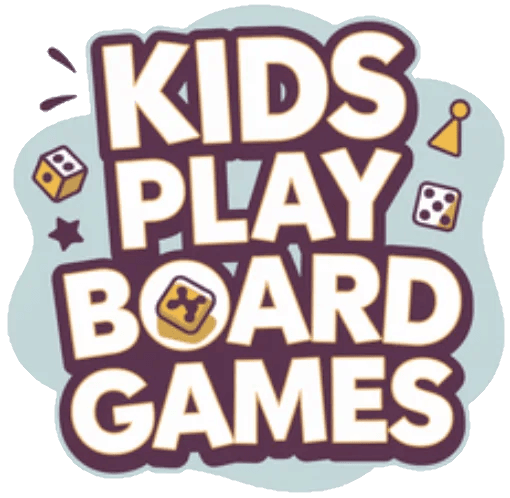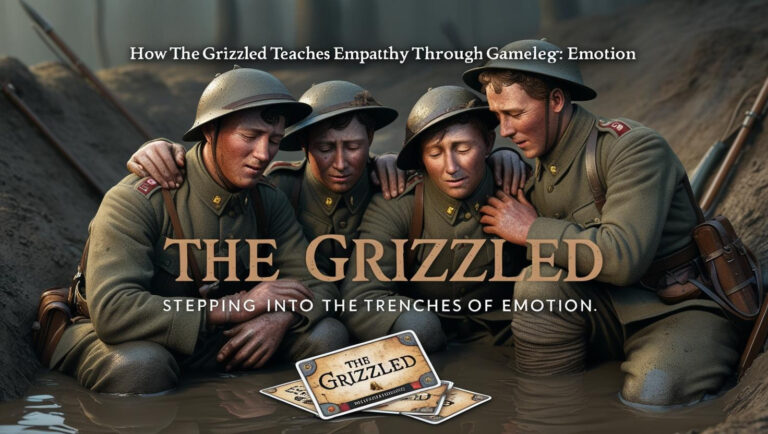Board Games for Children’s Social Challenges: Support & Connection

Many children navigate the social world with ease, but for some, social interactions can present significant hurdles. These social challenges might manifest as difficulty understanding social cues, struggling with communication, or finding it hard to form connections with peers. While various strategies can support these children, engaging in play, specifically through board games, offers a powerful and readily accessible avenue for growth. This isn't about winning or losing; it's about the inherent social learning woven into the fabric of gameplay.
The Building Blocks: How Board Games Nurture Social Growth
Board games offer more than just entertainment. They provide a unique and structured environment where crucial social skills can be practiced and developed organically. This playful context reduces pressure and allows children to learn at their own pace.
A Predictable Space for Exploration
Board games operate within defined rules and boundaries. This predictability can be incredibly comforting for children who find the fluidity of social situations overwhelming. Knowing what to expect next can ease anxiety and encourage participation.
Opportunities to Practice Essential Skills
Gameplay naturally necessitates the use of fundamental social skills. Taking turns, sharing resources (even metaphorical ones), understanding instructions – these actions, repeated throughout a game, become opportunities for practice and reinforcement.
Want to explore more ways board games can help kids thrive socially? Discover how games specifically boost social confidence with board games, cultivate cooperation and teamwork through board games, and unlock board games' power in building communication skills in our related articles.
Fostering Communication and Understanding
Many board games inherently require communication. Children might need to explain their intentions, ask for clarification, or negotiate with other players. This shared context creates a natural motivation to interact and be understood.
Developing Empathy and Different Perspectives
Certain game mechanics can subtly encourage children to consider the viewpoints of others. Anticipating another player's move or understanding their strategy requires a degree of perspective-taking, a crucial element of social understanding.
Cultivating Emotional Strength and Resilience
Board games inevitably involve both successes and setbacks. Learning to manage disappointment when things don't go as planned, or celebrating achievements with others, helps children develop emotional regulation and resilience in a safe space.
Deconstructing the Game: How Mechanics Build Social Skills
The design of board games themselves contributes directly to social skill development. Different game elements target specific areas of growth.
Structures that Spark Conversation
Some games are designed with mechanics that naturally prompt verbal exchange. Explaining a choice, asking a question about the rules, or sharing an observation are all forms of communication that are often essential to progress in the game.
Dynamics that Encourage Teamwork
Certain games necessitate collaboration. Players must work together towards a shared objective, requiring them to communicate effectively, compromise, and support each other. This shared purpose fosters a sense of unity and shared accomplishment.
Elements that Highlight Emotions
While not always explicit, some game components or rules can subtly draw attention to emotions. Understanding how an action might make another player feel, or recognizing frustration in oneself or others, can build emotional awareness.
Strategies that Sharpen Thinking
Many games involve strategic thinking, planning ahead, and adapting to changing circumstances. This process helps develop problem-solving skills and the ability to consider consequences, skills that are valuable in social situations as well.
The Power of Predictable Turns
The simple act of taking turns, a fundamental element in most board games, provides a clear and predictable structure. This is particularly beneficial for children who may struggle with the give-and-take of social interaction.
Optimizing Play: Creating the Best Environment for Growth
To maximize the social benefits of board games, consider these key aspects:
Aligning with Individual Needs
Selecting games that are appropriately challenging and engaging for the child's specific developmental level and interests is crucial. This ensures they are motivated to participate and can experience success.
Focusing on Specific Skill Development
Consider which social skills you want to encourage. Different game mechanics naturally lend themselves to practicing different skills. Think about the desired outcome and choose games accordingly.
Building a Supportive Atmosphere
Creating a positive and encouraging environment is paramount. Patience, praise for effort, and modeling good sportsmanship are all essential elements.
Adapting the Rules When Needed
Don't be afraid to modify the rules to better suit the child's needs or to focus on a particular social skill. Flexibility can make the experience more accessible and beneficial.
Valuing the Journey, Not Just the Win
Shift the focus from winning to the process of playing and interacting. The social engagement and learning that occurs during the game are far more valuable than the final outcome.
From Game Table to Real Life: Transferring Learned Skills
The social skills practiced during board games are not confined to the tabletop. With guidance and awareness, these skills can translate to real-life interactions. Improved communication, the ability to cooperate, and a greater understanding of emotions can positively impact a child's experiences at school, with friends, and at home. Helping children recognize these connections is key to fostering lasting social confidence.
The Power of Play: Building Bridges Through Board Games
Board games offer a unique and engaging way to support children facing social challenges. By understanding the inherent social learning opportunities within gameplay and creating a supportive environment, we can harness the power of play to help these children build connections and navigate the social world with greater confidence and ease.






